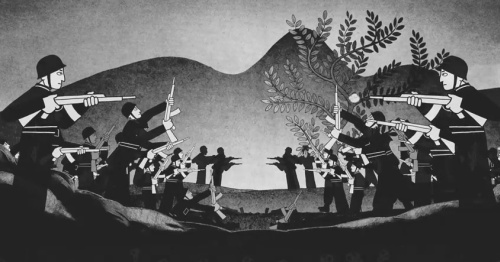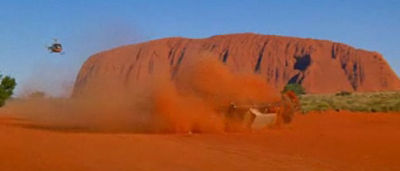(Can I pass off my appalling MIFF puns as a tribute to the bad puns of old cartoon titles? No? Oh.)
Well, I’ve finished MIFF with three films back-to-back this afternoon; all good (or at least enjoyable), thankfully. I also saw two on Friday. So I might as well wrap them up briefly while the thoughts are fresh.
Persepolis (Marjana Satrapi, 2007)
I’ll do a fuller review of this in the next week or so (hopefully), so more on this later. But suffice to say it’s brilliant, and you absolutely should see it when it comes out.

Encounters at the End of the World (Werner Herzog, 2007)
I didn’t dislike this to the same extent Mark Lavercombe at Hoopla did, but it was disappointing. Sharing more than a little in common with Herzog’s earlier science-fiction / documentary / head-scratcher The Wild Blue Yonder (which I covered at a previous MIFF, see here), it sees Herzog travel to Antarctica to talk to various research scientists. Herzog is, of course, an eccentric of long standing, and sometimes (most recently in Grizzly Man) his off-kilter perspective can be strangely brilliant. Here, though, he generally comes across as foolish. He has some interesting interview subjects, and certainly gets some great footage in the scenes of diving under ice (it’s here the film resembles Wild Blue Yonder – it may even reuse some of the same footage). But he consistently seems the least intelligent person in the room: his narration ruminates on humanity’s relationship with the environment, but his interview subjects are vastly more informed than he is on the topic. Funny, often beautiful, and Herzog is never a waste of time; but there’s a sense that Herzog is resting on his laurels as one of the great documentarians, rather than really chasing down a great story as he did back in Grizzly Man.
Continue reading →


